International Women’s Day marks their triumphs, trials
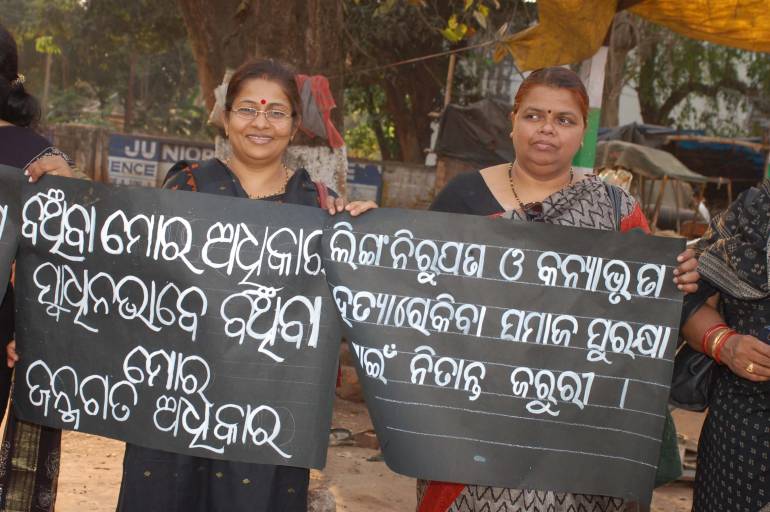
International Women’s Day, celebrated on March 8, is a day of remembrance of their struggles for equality, freedom, and justice.
“It is a day to recognize the achievements and struggles of women in different fields. To commemorate the occasion, we recognize the contribution of women who have struggled and have come out victorious. We felicitate them,” says Lalita Missal, a promoter of women’s rights in Odisha, eastern India.
According to her, March 8 is also a day of celebration of women’s freedom and work.
“It is a day to let the world know that whatever be the situation, we survive and are resilient enough to continue our journey towards equality and justice,” says Missal, a social activist.
When asked to comment on the UN’s theme for International Women’s Day 2022 as “Gender equality today for a sustainable tomorrow,” she said it is because of the pandemic and the effects of climate change, especially on women and girls.
Frequent disasters, diseases, and the pandemic have had severe consequences for women and girls in their roles as caretakers and food providers, Missal explained.
The pandemic exacerbated gender discrimination and exploitation. An increase in women’s work burden in disasters was there, but the pandemic became more blatant.
“For ages, it has been seen that women with the help of their girl children have put in more work to protect and preserve the sources of sustenance—be it water, forest, crops, or even money. It is high time the world recognizes that it is women who sustain the family and community,” she pointed out.
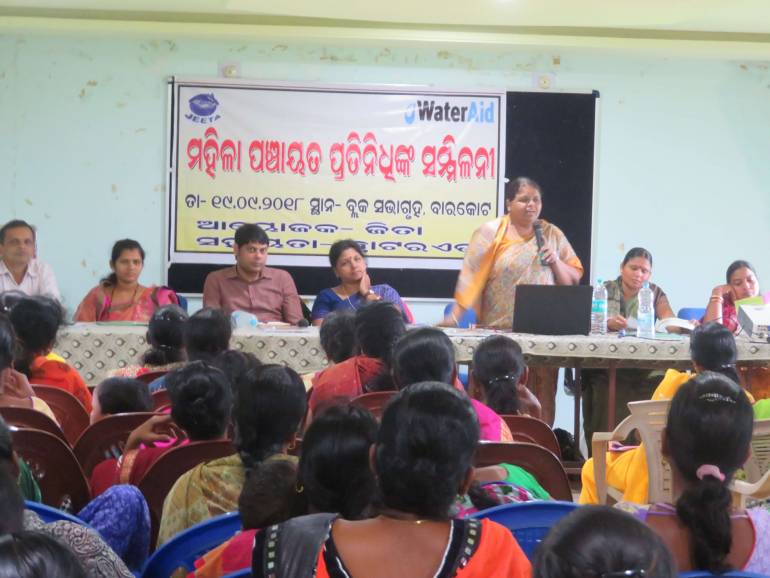
Observing International Women’s Day is important for one and all. “Women did not get all these rights and freedom all of a sudden. Some women have fought for us since 1910 to enable us to reach where we are today. They had to fight for every right (right to vote, work, education, property), and against all kinds of violence,” Missal says.
She collaborates with various women organizations, civil society groups, faith-based NGOs, including Catholic Church in Odisha.
Based in Bhubaneswar, the capital of Odisha, Missal has a Master’s degree in Social Work.
In January 1988, she joined a social development organization called the Centre for Youth and Social Development in watershed management and another project on maternity and child health.
“These two projects gave me hands-on experience of working with women, organizing and enabling them to get out of their debts and lead a better life,” said Missal, a mother of three children.
The projects also opened her eyes to the layers and nuances of discrimination and vulnerabilities women face from different sections of society.
Then, she joined an organization that she was part of founding. She began to work only on women's issues and started working in the advocacy area.
My first attempt at state-level lobbying for the establishment of the state commission for women was in Odisha in1992.
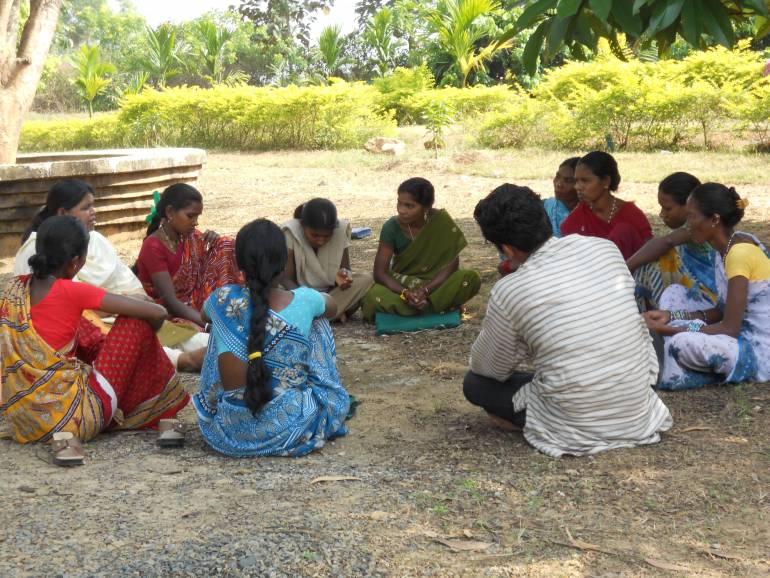
Missal has also attended the 1995 Fourth World Conference on Women in Beijing, China, organized by the United Nations.
She became part of the post-Beijing event called the National Alliance of Women, a membership-based alliance set up to lobby and advocate for pro-women laws and policies.
The activist was a part of lobbying for a federal law called “the Protection of Women from Domestic Violence Act 2005,” “Sexual Harassment of Women at Workplace Act 2013,” 50% reservation for women at the ‘panchayat’ (village council) level, and an amendment to the Criminal Law (Amendment) Act 2013 (Indian Evidence Act, and Code of Criminal Procedure, 1973 on laws related to sexual offenses).
Proposing a way to address the cultural issues that form the background of the gender pay gap in India, Missal said the whole concept works in a patriarchal society which is much skewed.
Women are always seen as supplementary workers in society. As per the National Sample Survey data of 2008, women are 80% of the 32.1 million populations that migrate internally, but they are counted as associate migrants who accompany their spouses to search for work or due to conflicts and natural calamities.
However, it has not been found that most women who migrate get into informal work and hence are not counted as workers, nor is their contribution to the national economy recognized. This is a sad state of life.
Women are considered supplementary workers. Even when Indian law says equal pay for equal work, they are paid less.
In a corporate setup, this pay gap exists as women are not seen as breadwinners. But if one goes to any tribal village or the marginalized family in most cases, a family is fully dependent on the income of women and girls. This realization has to be brought among village leaders, priests, and other elders who would then influence their communities, said Missal.
The most effective way to counteract the negative stereotypes of feminism, especially in the workplace, Missal says creating awareness among women that they deserve the money for their labor spent.
Also, creating awareness among their male counterparts is rare. The wage gap is not beneficial to women, Missal explains.
One way to address the wage gap based on gender, Missal says, “Wherever necessary, take the help of the law to get equal pay.”
“Sensitizing the male colleagues that women are equally serious and capable for work. Besides, how women should dress is their right as well,” she adds.
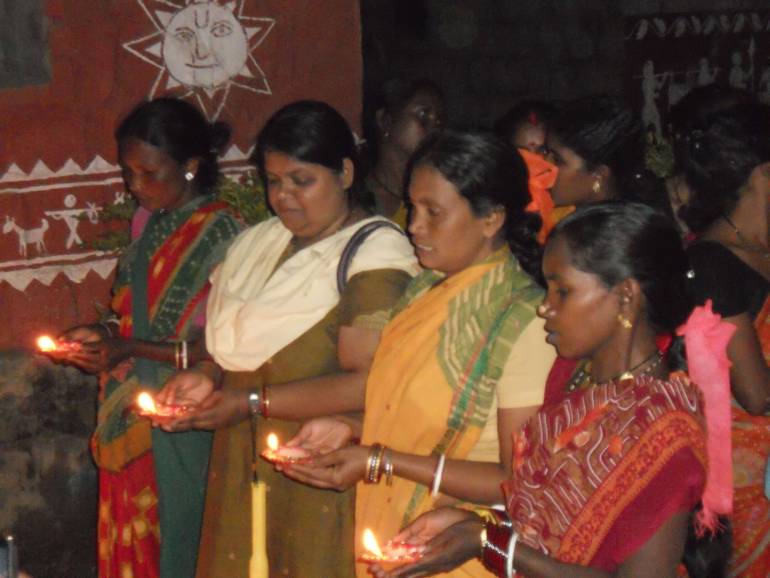
Regarding the responsibility for taking action on women’s issues, Missal says women have the right to live with dignity and take action for their rights.
Women, government, civil society, institutions, and everyone have the responsibility to promote and protect women’s rights. It does mean that women have to be on the streets for rallies all the time, but there are many ways of taking action. Nowadays, social media is one of the ways used to take action, Missal explained.
For addressing gender stereotypes in society, Missal says, “We should bring up our boys to be sensitive to the concerns of women such as menstruation, childbirth and societal practices that are detrimental to women and their dignity.”
Men and boys need to respect women with diligence. They need to learn all their house chores by themselves, whether cooking, cleaning or laundry. Then they will understand how women work in society.
Discrimination and violence against women and girls must stop, she adds. “When violence against women happens, they must complain to police or any competent authority for proper action,” she adds.
“We need to teach girls and women to be strong, confident, and fearless,” Missal says.
Though India has enacted many laws and policies for improving women’s lives, getting justice or implementing these laws and policies is not followed to enhance women's lives.
“When laws related to women’s rights are not implemented well, advocacy for their implementation must go on,” Missal says.
Working for women’s empowerment can be stressful as well, according to her.
“The most stressful part of working on women’s issues is that as you think you have moved forward a bit, then comes a disaster or a communal riot which pushes back all the efforts,” she says.
Though many things have been accomplished for women's empowerment, the pandemic has pushed back in every way—loss of life, health, work, and schooling. It is like going back to the point where one started.
The government and others should continue efforts to promote education, equip the health system and health personnel, and provide jobs and sources of livelihood for women to improve and enhance their quality of life.
Speaking on the status of women in India educationally, economically, and politically, Missal says, “It is a paradox on the one hand, given the opportunities girls have consistently scored better than boys at all levels whether at school or university. But still, women’s literacy rates are lower than men's. This must change.
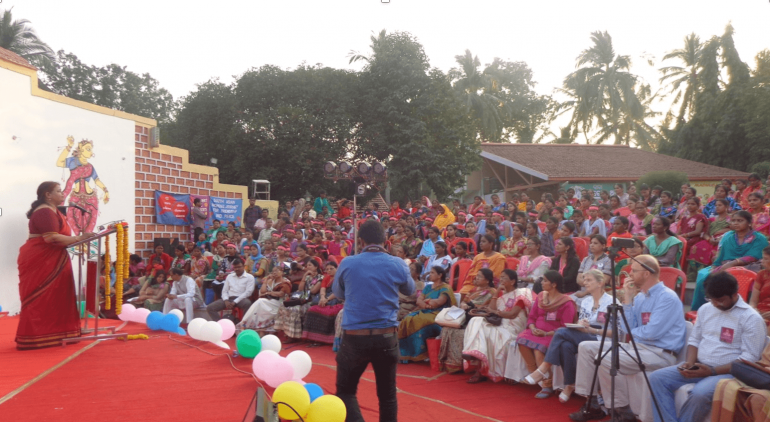
Women's workforce participation has been going down, and women working in the informal sector are more than 93%.
Land ownership among women is very low in India. During the pandemic, women lost their jobs—domestic workers. Industries such as garment and other service sectors are closed down. Women are still suffering even now.
All vendors, including males and women, lost their jobs. For two years, no jobs, no wages. All have been shattered the economic condition of women and their families. Debt has increased manifold.
Women’s voting has increased. There are participating in elections due to the reservation.
But a few take up women’s issues at the local, state assembly, or even at the federal level.
Others who raise their voices on women’s issues are made to shut down. At the village council level, women are always dominated by the male secretary and many by their husbands or sons, Missal says.
Despite many challenges, the rights and dignity issues of women and gender justice must improve at all levels, she added.
Radio Veritas Asia (RVA), a media platform of the Catholic Church, aims to share Christ. RVA started in 1969 as a continental Catholic radio station to serve Asian countries in their respective local language, thus earning the tag “the Voice of Asian Christianity.” Responding to the emerging context, RVA embraced media platforms to connect with the global Asian audience via its 21 language websites and various social media platforms.














